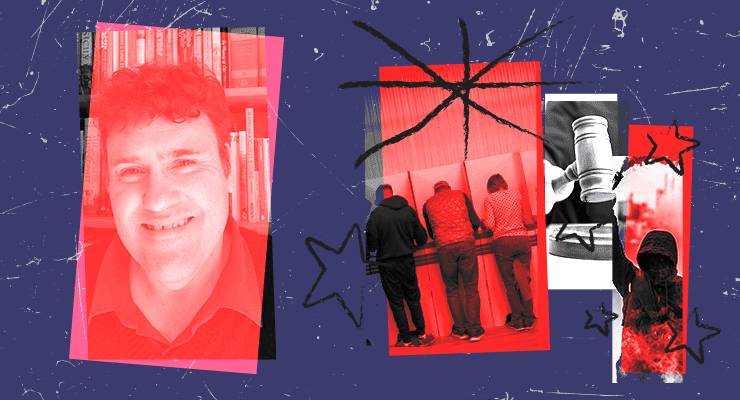
This is part 11 in a series. For the full series, go here.
You can be too trusting. In its latest report, based on data gathered in October and November 2020, the Edelman Trust barometer placed the citizens of Saudi Arabia and China at the head of 27 countries surveyed in terms of trust in government.
Australia came ninth — which still placed it among the most trusting Western democracies.
What was more remarkable was the turnaround from previous surveys. The 2019 Australian Election Study had found political trust at a 40-year low. In previous Edelman reports, Australia has usually been found among the less trusting countries. But between the 2020 and 2021 surveys — one pre-COVID and the other taken during the pandemic — Australia had climbed a startling 17 points, the largest increase for any country involved.
We don’t yet have any further Edelman results but as we approach the end of the pandemic’s second year, it seems likely that following the recovery in trust picked up by several surveys in 2020 we are trending towards something like the pre-pandemic situation.
One indication of that came with the tracking of public perceptions of political leadership by Swinburne University’s Australian Leadership Index. Following the buoyant numbers of 2020, it found a sharp decline in the early months of 2021, a downward trend that has continued.
The Scanlon Foundation’s annual survey on social cohesion discloses something similar. In 2019 it had 36% of respondents agreeing that government in Canberra could be trusted to do the right thing, but that had climbed into the mid-50s during 2020, falling back to 44% in July 2021. The recent lockdowns in New South Wales and Victoria may well have hardened opinion against a federal government widely blamed for these setbacks.
But even before the winter of discontent, confidence in the Morrison government’s handling of the pandemic had dropped in the Scanlon survey from 85% (in 2020) to 52%. Respondents rated state government performance more highly at that stage, and in most states much more highly — even if they could not quite approach the stellar figures of Western Australia, which still stood at 94% in mid-2021.
What are we to make of these trends in relation to the health of Australian democracy?
It is obvious that levels of trust cannot stand proxy for the quality of democracy. A high degree of trust can sit well with a high degree of despotism. It is neither China nor Saudi Arabia, but it might be doubted whether the very high level of approval the Western Australian McGowan Labor government has received from its residents for its handling of the pandemic is producing healthier democracy.
Nor is Labor’s overwhelming majority in the Parliament likely to be a victory for accountability, given that it probably makes the present government electorally untouchable for this term and the next, at least.
In mid-2020, the Scanlon survey found that 99% of Western Australians approved of their government’s handling of COVID; this had only dropped to 98% later in the year. People and government are clearly so enamoured of one another that they’re willing to sacrifice an Ashes Test for the continuation of life of “freedom” in their happy kingdom.
That people generally seem more trusting of their state and territory governments than of Canberra is worth further reflection. It looks like something more than partisan perception of the present incumbents — although that plays a large role.
State governments do things. They routinely deal with matters affecting everyday life, and especially so in a pandemic. Federal governments do economic management, but the Morrison government’s capacity to build trust on this basis has inevitably been limited by serious and unavoidable disruptions to the economy.
When the federal government has sought to do things — like run a vaccination program — it has been seen to do it inadequately. Or is has failed to do anything much at all, as in the matter of quarantine, where the states have taken over practical responsibility.
If what historians going back to WK Hancock tell us about how Australians see government is true — that they are rather utilitarian in their attitude — they are likely to form judgments about the quality of their democracy from its capacity to deliver them practical benefits. At a time when Australians have naturally had limited horizons, they have seen state and territory government as on a scale well suited to a decent quality of democracy, however imperfect.
Like any relationship between government and governed, it has its frustrations, and it has its dissenters, some now pretty wild. But this seeming democratic preference for something smaller, more local and more “at hand” may well have wider implications if it translates into support for the plethora of independents emerging in federal contests around the country.
It is no accident that such candidates have already had so much to say about improving accountability, integrity and trust in national government.
We will hear more of the same in the months ahead. The federal government — whoever controls it after the next election — may well be held to standards and agendas previously more familiar at the subnational than the national level.








“A high degree of trust can sit well with a high degree of despotism. It is neither China nor Saudi Arabia, but it might be doubted whether the very high level of approval the Western Australian McGowan Labor government has received from its residents for its handling of the pandemic is producing healthier democracy.Nor is Labor’s overwhelming majority in the Parliament likely to be a victory for accountability, given that it probably makes the present government electorally untouchable for this term and the next, at least.”
“In mid-2020, the Scanlon survey found that 99% of Western Australians approved of their government’s handling of COVID; this had only dropped to 98% later in the year. People and government are clearly so enamoured of one another that they’re willing to sacrifice an Ashes Test for the continuation of life of “freedom” in their happy kingdom.”
Another weird assault on WA in today’s Crikey. McGowan’s party won a huge majority at the last state election by policies the electorate approved, and an opposition not worth spit. That’s not despotism or tyranny, it’s how such elections are meant to work. Comparing it to China or Saudi Arabia is deranged and hysterical. McGowan’s government cannot be ‘untouchable’for the next one or two elections. If it fails to perform it can lose seats, and even lose its majority, in exactly the way any government can. It has to lose many seats to be booted out next time, but that can happen. Just ask Campbell Newman.
And who cares where one Ashes test is held? That is a laughably minor and trivial matter compared to the freedom to move around the state without all the restrictions imposed elsewhere, and the freedom from the virus the entire WA population has enjoyed so far.
Yes a poorly constructed argument and poorly written. Not sure how it got passed the editor.
There’s only one group in our society that can trust the govt to work for them. Billion dollar companies! They pay a price of course, but not that much actually. The rest of us? Forget it.
Haven’t experienced any trust for a few years now and I am also still waiting for “the”, “a” or “any” good thing. Australians at large may well have limited horizons at the moment but perversely, SlowMo still hasn’t successfully completed his advertising flack training Australian or New Zealand job experience requirement so he can join the rest of us on the horizon of the real world.
I have always supported less Government but had thought the State Governments should be done away with and replaced by expanded regional bodies based around population and economic centers with common future-based social and economic interests leaving aside our crippling inter-State parochialism which approaches nihilism. I am increasingly attracted to the idea of also dispensing with the Federal Government and replacing it with a National Cabinet drawn from the senior Regional Leaders and their senior quasi-Ministers.
Even if if this arrangement was not altogether successful just think of the treasure the nation might save, the better regionally based and directed services for our residents and the alleviation of the mind numbing stress we all feel watching the current three ringed circus of carpetbaggers, the politically challenged and the policy free seat warmers currently infesting most of our governance institutions to pray on the public purse.